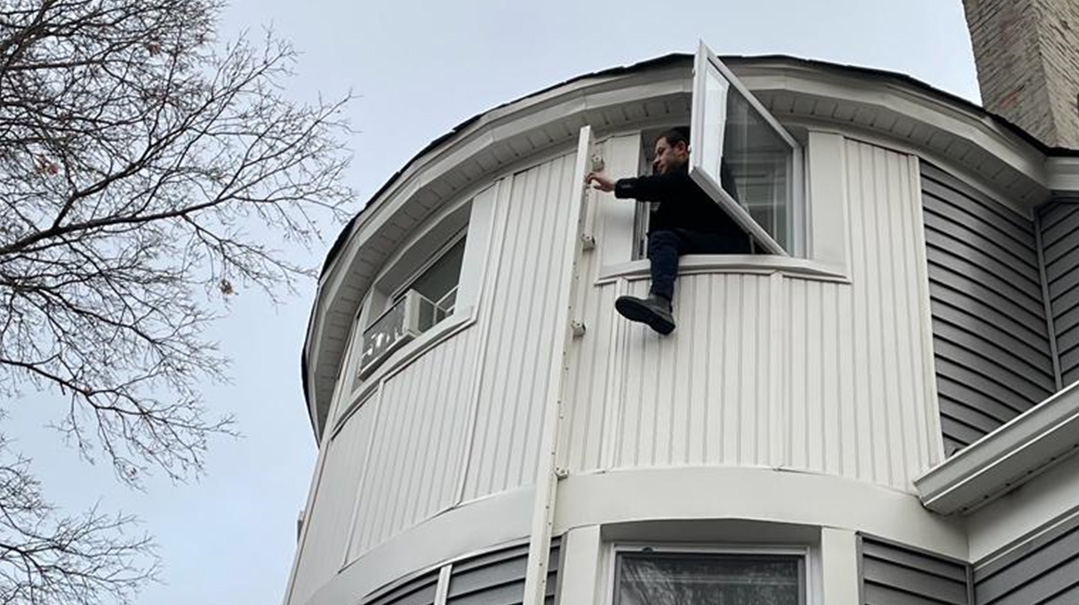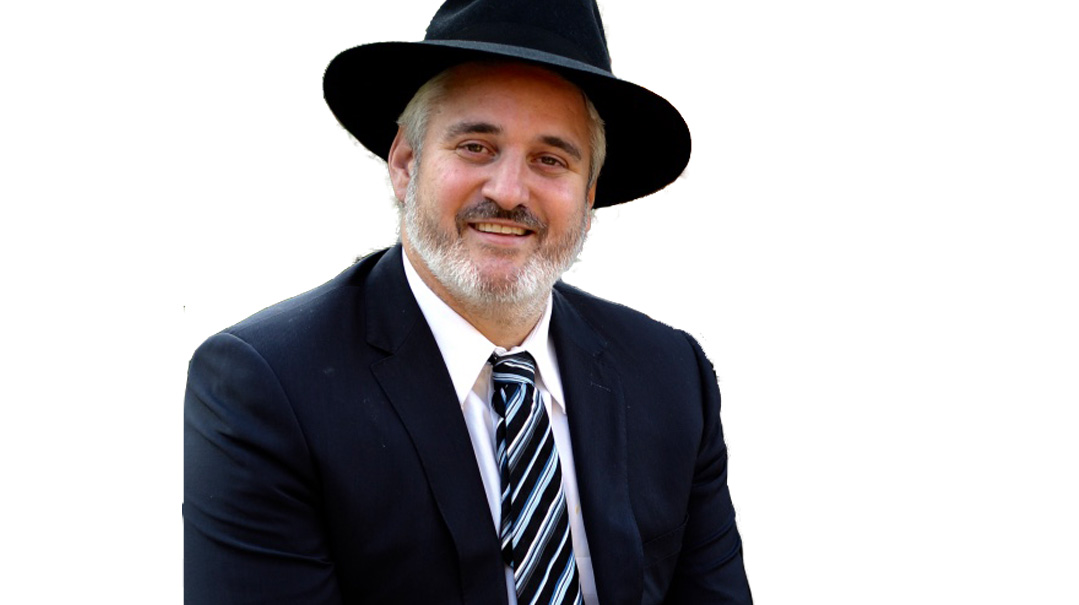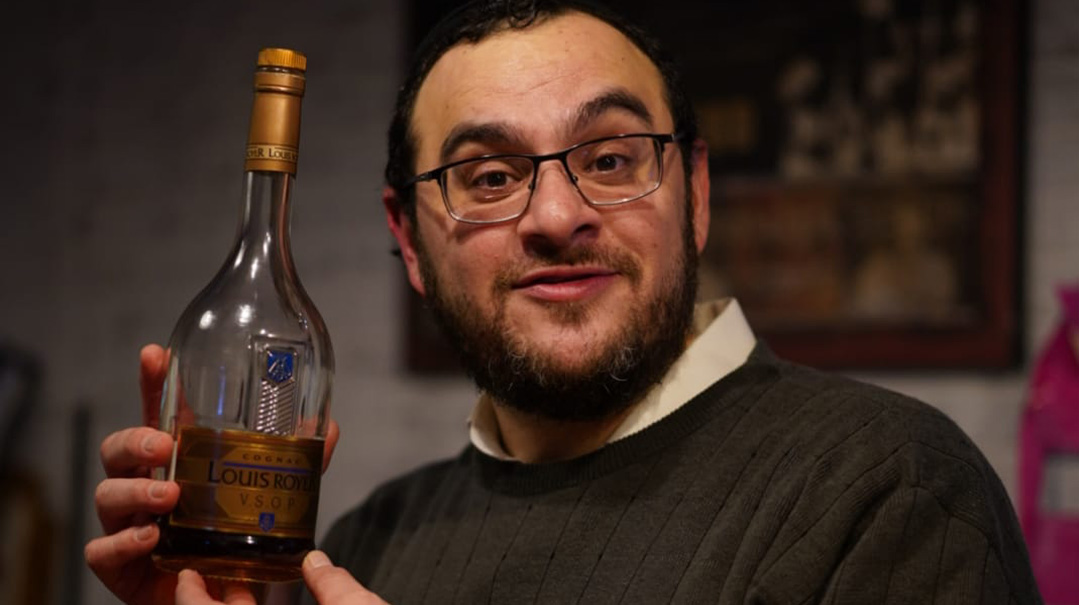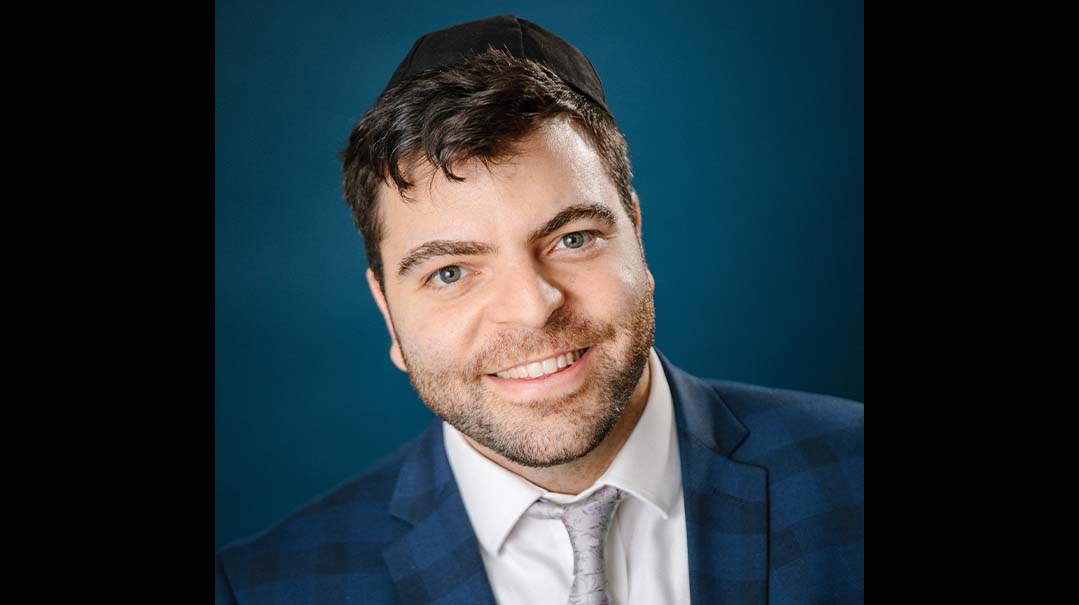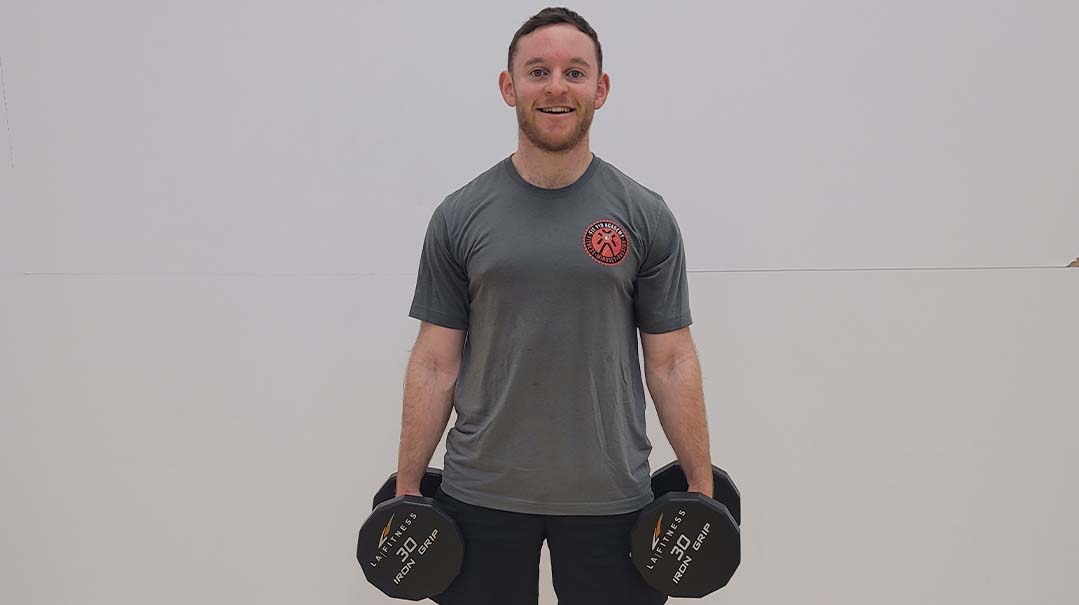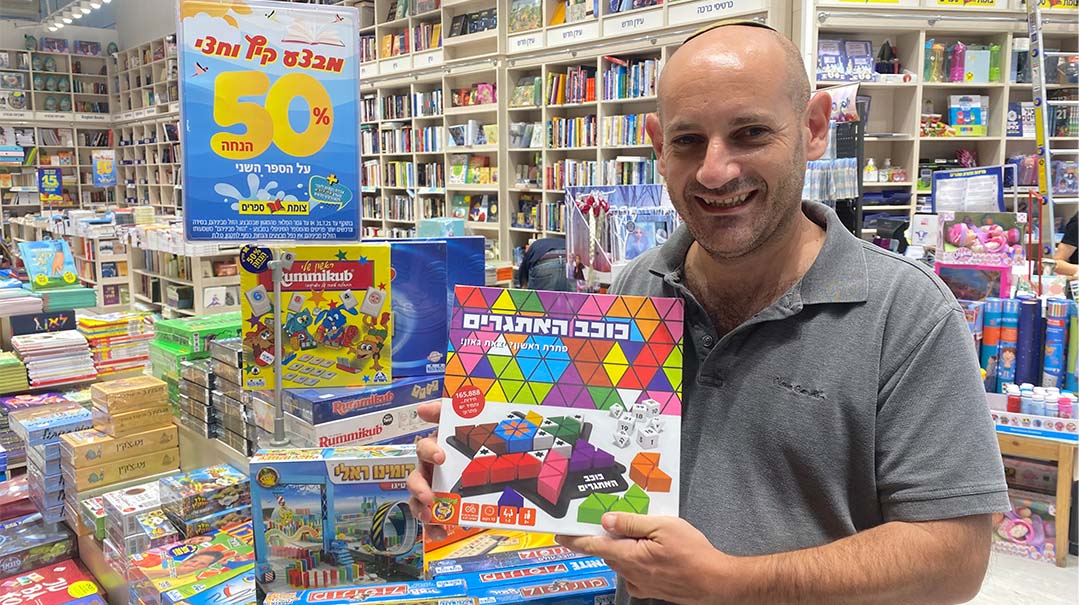10 Questions for…Gedalia Weinrib

Rabbi Gedalia Weinrib of Chai-A-Thon transforms your kids into seasoned fundraisers
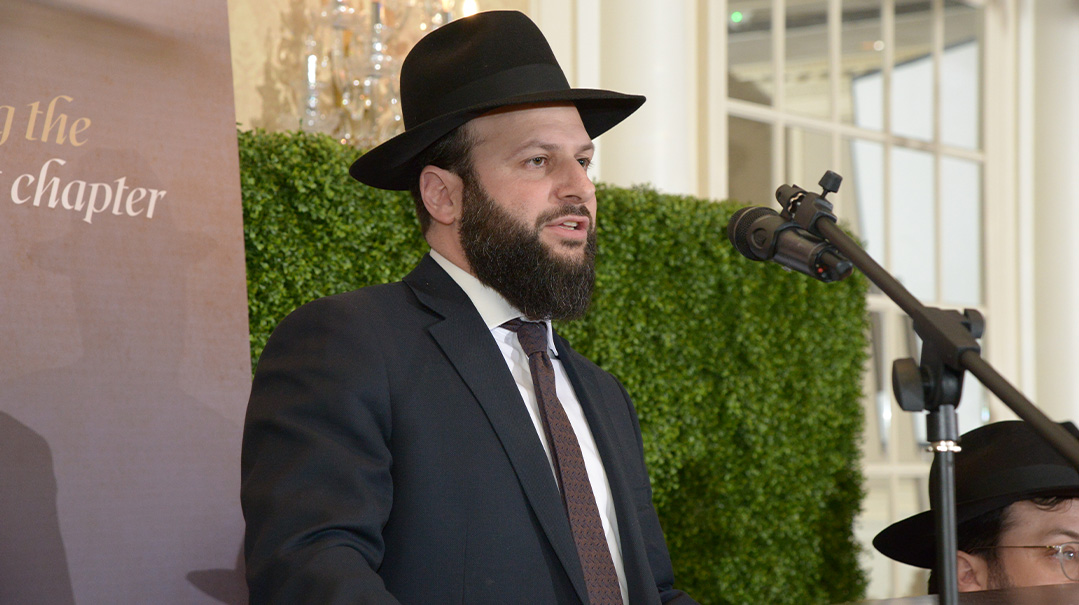
Rabbi Gedalia Weinrib is the director of Chai-A-Thon, a children-led fundraiser for Camp Simcha, Chai Lifeline’s sleepaway camp for children with life-threatening and lifelong illnesses. Chai Lifeline is a national chesed organization that supports sick children and their families.
How does Chai-A-Thon work?
Over the course of the summer, tens of thousands of children across the country run custom fundraisers, from bike-a-thons to lemonade stands to backyard carnivals to yard sales to Tehillim-A-Thons and more. There are different fundraising levels, and based on how much you raise for Chai Lifeline, you can get a prize from that tier — anything from an art set and drawing tablet if you raise between $36 and $74 to a Segway if you raise $3,500 or more. The options for creativity and innovation are endless, and kids go all out. A mother recently emailed about her seven-year-old who’s advertising, “Won’t you buy a s’mores pie?” for Shabbos dessert with free delivery, with 17 orders so far. Another mother told us about the fast day camp her daughter and friend ran for kids on the block, all proceeds to Chai Lifeline. A boy is learning a mishnah a dollar — he’s at $107 and 107 mishnayos. Two sisters designed and sold Perler bead bows and did hairstyles for their friends, raising $1,200 together. Flower shops, hot dog stands — you name it, they sell it!
Can you share numbers?
On an average summer, we send out about 15,000 prizes. We work with more than 300 day campsin the US and Canada — that’s over 75,000 children in more than 20 states across North America, not to mention the thousands of children raising funds on their own.
Who came up with the idea for the Chai-A-Thon?
Chai-A-Thon predates me — I joined nine years ago — but Chai-A-Thon is over 25 years old. It’s the brainchild of Chai Lifeline CEO Rabbi Simcha Scholar, who was sitting with a patient when he saw an ad for a community hospital’s marathon fundraiser. Interesting idea, he thought. Can we adapt it? Camp Simcha was in its early stages at the time, and Rabbi Scholar thought this could help fund it. The program actually started as Swimathon, with the basic concept being kids getting sponsored per lap. Over the years, it evolved into what we now call Chai-A-Thon.
What changes have you made over the years?
Our newest addition is an upgraded website where parents can open personal fundraising pages for their kids. It streamlines the whole process, because you can send the link to family and friends. Some camps or extended families take it a step further, creating team pages where their individual pages are linked to work toward a common fundraising goal. We also designed signs for the most common fundraisers — carnivals, bake sales, and lemonade stands — that kids can download and print, to make it easier to run an event.
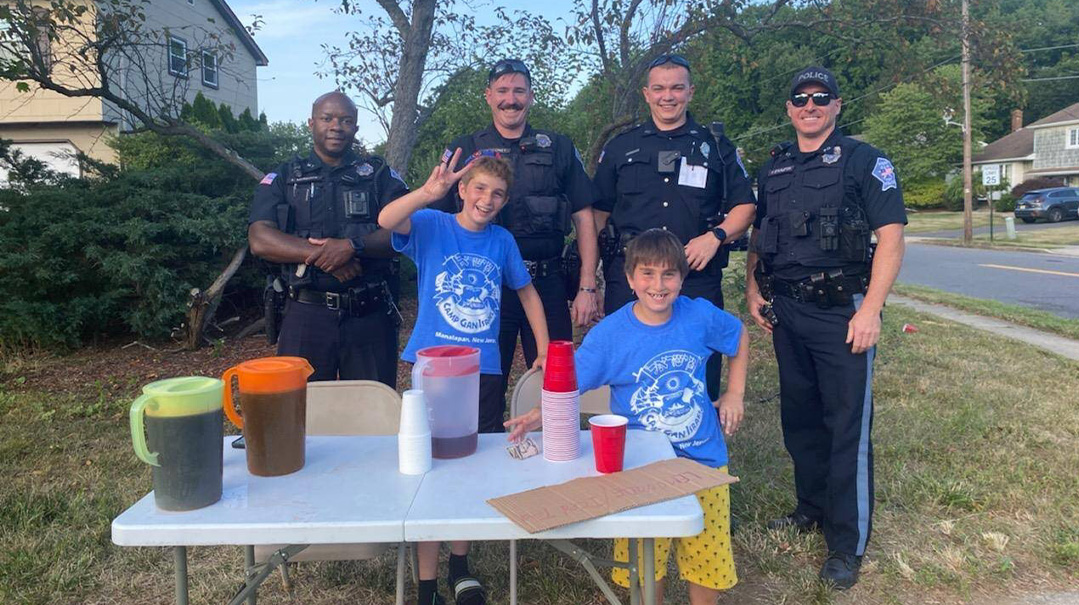
Who takes care of the prizes?
We cover the costs — and we have strong opinions about how large a prize to give for each fundraising category, because we want to maximize the amount coming to Chai Lifeline’s programs while acknowledging and appreciating the hard work of our young fundraisers. In fact, we recently began manufacturing the prizes ourselves, which cut costs drastically, and our suppliers are generous —they give us steep discounts because they understand the Camp Simcha cause.
Who’s on staff?
Chai-A-Thon operates primarily during the summer, and it’s technically a two-person department. I work with Mrs. Tova Herz, who handles all the details from calling camps to scheduling presentations to coordinating prize orders — she’s been doing this for more than 25 years. We also hire temporary employees for the summer to help communicate with camps and deal with technical details. During the year, Chai Lifeline also has a Kids4Chai program, which offers fundraising opportunities for the school year. I don’t manage that, because I’m a menahel in Yeshiva Ohr Yehuda, a boys’ elementary school in Lakewood.
How did you get involved?
I’ve always been a fan: I worked as a staff member at Camp Simcha, I volunteered at Chai Lifeline year-round, and then, when someone I was close to took ill, I witnessed firsthand how much the organization accomplishes. I joined Chai-A-thon as a rebbi — I wanted to do something a little different when I was off in the summer months, and when I heard Chai Lifeline needed someone to help with the summer program, it seemed like the perfect fit.
What’s the most common question you get?
“When’s the deadline to send in the money?” Although we’re officially a summer program, we tell children they can send it at any point during the year. Before Pesach, we get thousands of dollars that turned up while cleaning.
What do you tell parents and mechanchim who are critical of the prize concept?
I appreciate this question, because I work in chinuch. When we introduce the program to children, our message is that the Chai-A-Thon is a means to help their less fortunate peers, and the prize is our way of saying, “Thank you for your efforts.” I do hear the concern about the incentive — we don’t want children to view this as “I’m buying this new toy” or “My parents won’t get me ABC so I’ll get it by collecting” — but to be honest, this struggle isn’t limited to tzedakah-collecting, because so many households and classrooms run incentive programs. I tell people that this is why we so strongly encourage children to come up with and run their own fundraisers. When a child actively works to raise money, his feelings of ownership and empowerment supersede any materialistic benefits we can provide. So it really comes down to the message kids are getting, and parents overwhelmingly agree: “My son’s hoverboard is like a badge of honor,” and “When my daughter uses her popcorn machine, it reminds her of this chesed she worked hard on.” Yes, the prize is nice, but at the end of the day, Chai-A-Thon is about kids supporting other kids. They also come out with a sense of gratitude and appreciation for what they have.
What’s the most moving feedback you’ve received?
In our brochure this year, we featured a story about an eight-year-old boy who took the ice bucket challenge a couple of summers ago to raise money. That fall, he was hospitalized following an accident, and Chai Lifeline provided him and his family with meals and services. Support from anyone is meaningful, but it’s especially heartwarming when families who were helped by Chai Lifeline want to help us continue doing what we do. Like the mother who emailed about her daughter’s bake sale before her bas mitzvah: “She herself is a cancer survivor and benefited so much from Chai Lifeline,” the mother wrote. “She would love to give back.”
(Originally featured in Mishpacha, Issue 923)
Oops! We could not locate your form.

